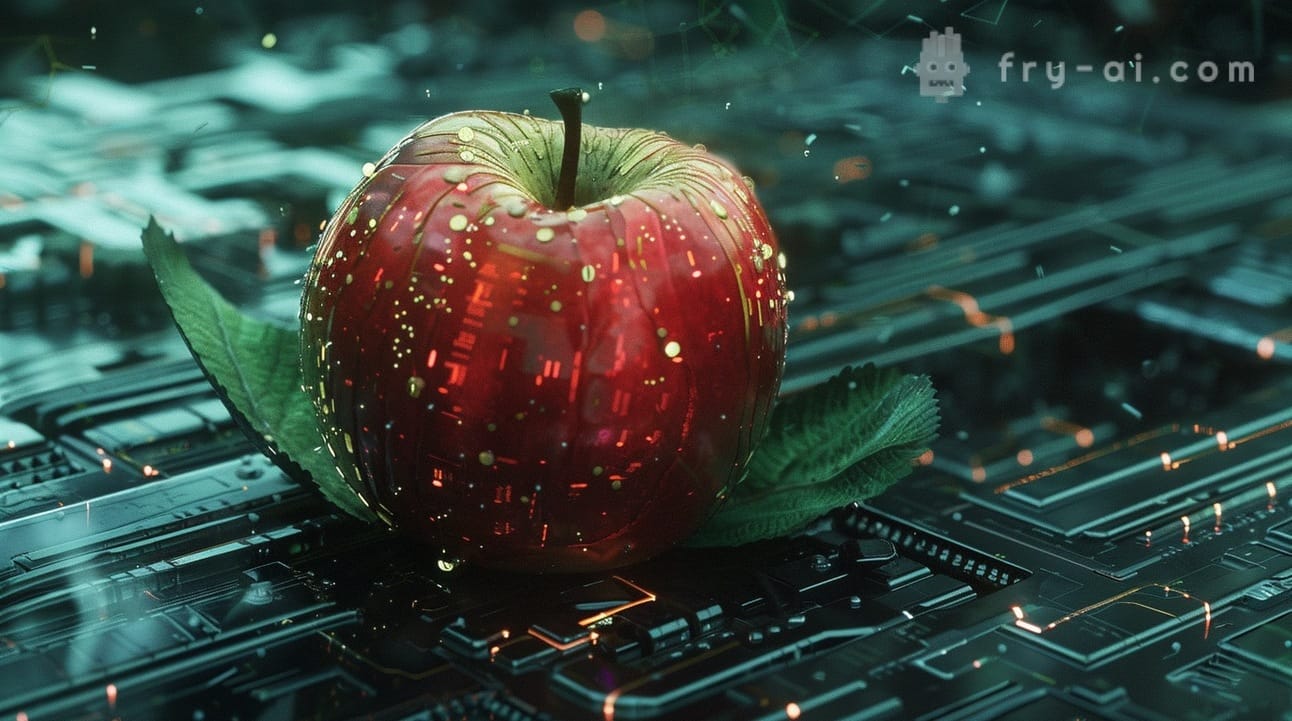
Good morning, and happy Wednesday! We are here to sprinkle some flavorful AI seasoning on your day. 😋
🤯 MYSTERY AI LINK 🤯
(The mystery link can lead to ANYTHING AI related. Tools, memes, articles, videos, and more…)
Today’s Menu
Appetizer: Microsoft launches Phi-3 Mini model 🙂
Entrée: Apple stacking up tech startups 🦾
Dessert: AI predicts political lean from facial structure 🤯
🔨 AI TOOLS OF THE DAY
🌆 Background Remover: Remove the background of high resolution images in seconds. → check it out
➗ AI Math: Get answers to difficult math problems. → check it out
💧 Dr. Watermark: Remove a watermark from any image. → check it out
MICROSOFT LAUNCHES PHI-3 MINI MODEL 🙂
If Microsoft was giving out candy for Halloween, it would be fun-sized. 🍫
What’s new? Microsoft has launched the Phi-3 Mini, a lightweight AI model that serves as the first of three smaller Phi-3 models the company plans to release.
What is Phi-3 Mini? With 3.8 billion parameters, Phi-3 Mini is trained on a smaller dataset compared to larger models like GPT-4, but is said to perform nearly as well as models 10 times its size. This release follows Microsoft’s earlier Phi-2 model (released in December, 2023), which competed with larger models like Llama 2. Available on platforms such as Azure, Hugging Face, and Ollama, Phi-3 Mini is part of Microsoft’s effort to create efficient AI models suitable for personal devices like phones and laptops.
How was it trained? Phi-3 Mini was trained with a “curriculum” inspired by how children learn from books such as bedtime stories, focusing on simpler language and sentence structures to enhance understanding. Eric Boyd, corporate vice president of Microsoft Azure AI Platform, said, “There aren’t enough children’s books out there, so we took a list of more than 3,000 words and asked an LLM to make ‘children’s books’ to teach Phi.”
What’s the significance? Microsoft’s ongoing development of lightweight AI models like Phi-3 aligns with its efforts to create smaller models for specific tasks. These models often excel in custom applications due to their cost-effectiveness and compatibility with smaller datasets.
APPLE STACKING UP TECH STARTUPS 🦾
Q: Why did the apple turn red?
A: Because it saw the salad dressing. 🥗
What happened? Apple has acquired Datakalab, a French-based tech startup that specializes in data compression and image analysis. The deal reportedly closed on December 17, 2023, but has not been previously reported until now.
What is Datakalab? During the pandemic, Datakalab worked with the French government to employ computer vision to check whether people were wearing face masks on Paris’ transportation systems. The tech startup also deployed its computer vision technology in markets and bus stops in Cannes to monitor social distancing.
How will this help Apple? Datakalab’s computer vision technology will reportedly be used to enhance Apple’s upcoming iOS and Vision Pro features, particularly helping with facial recognition in photos and enhancing Face ID.
AI PREDICTS POLITICAL LEAN FROM FACIAL STRUCTURE 🤯
You really think I’d dare to make a political joke? 😆
What’s up? A new study published in American Psychologist has found that AI can predict an individual’s political orientation based on images of their expressionless faces.
How does it work? Led by Michal Kosinski of Stanford University, the study utilized an algorithm that captured numerical “fingerprints” of participants’ faces and matched them to a database of responses. The study used AI to map face descriptors to a political orientation scale, revealing that certain stable facial features correlated with political beliefs. For example, the “analysis of facial features associated with political orientation revealed that conservatives tended to have larger lower faces,” and that “liberals lips and noses are shifted downward, and their chins are smaller.” It’s worth noting that the results were devoid of figuring in age, gender, and ethnicity.
Why should we care? This alarming finding suggests that widespread biometric surveillance technologies may be more threatening to privacy than previously thought. The researchers urged the public, scholars, and policymakers to recognize and address these risks by tightening regulations on facial recognition technology and its applications.
“Our findings suggest that widespread biometric surveillance technologies are more threatening than previously thought. I think that people don’t realize how much they expose by simply putting a picture out there.”
“WATCH THIS” WEDNESDAY 👀
Tesla laid off over 10,000 employees in 1st Quarter of 2024. This AI-fabricated video depicts Elon Musk on a Zoom call with some of his “employees,” showing how the firing process might have (definitely not) went down:


